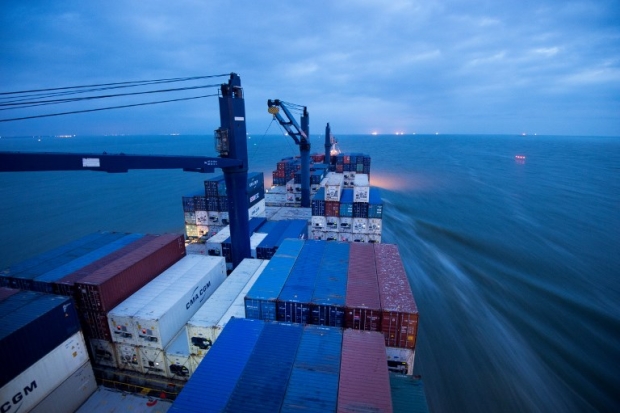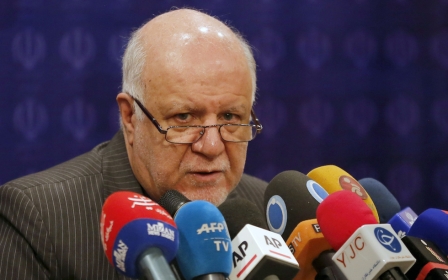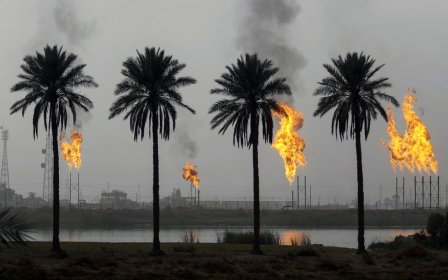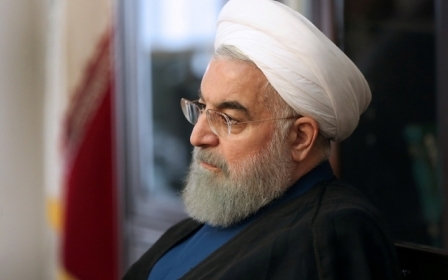Iran calls for EU help as shipping giant pulls out for fear of US sanctions
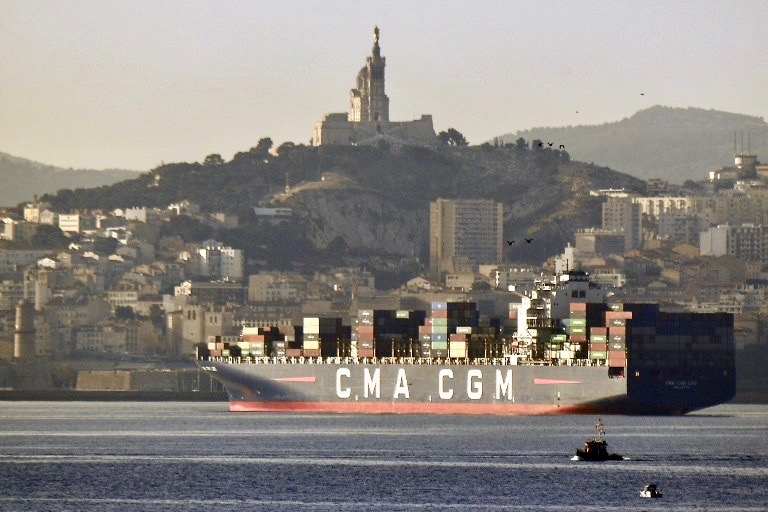
One of the world's biggest cargo shippers announced on Saturday it was pulling out of Iran for fear of becoming entangled in US sanctions, as President Hassan Rouhani demanded that European countries do more to offset the US measures.
The announcement by France's CMA CGM, which operates the world's third-biggest container shipping fleet with more than 11 percent of global capacity, that it is quitting Iran deals a blow to Tehran's efforts to persuade European countries to keep their companies operating in Iran in spite of the threat of new American sanctions.
"Because of the Trump administration, we have decided to end our service to Iran," the company’s CEO, Rodolphe Saade, told an economic conference in Aix-en-Provence in southern France. "Our Chinese competitors are hesitating a bit, so they may have different relationships with the Trump administration."
Iran says it needs more help from Europe to keep alive an agreement with world powers to curb its nuclear programme. US President Donald Trump abandoned the agreement in May and has announced new sanctions on Tehran. Washington has ordered all countries to stop buying Iranian oil by November and foreign firms to stop doing business there or face US blacklists.
European powers that still support the nuclear deal say they will do more to encourage their businesses to remain engaged with Iran.
Still, the prospect of being banned in the United States appears to be enough to persuade some European companies to keep out.
Foreign ministers from the five remaining signatory countries to the nuclear deal - Britain, France, Germany, China and Russia - offered a package of economic measures to Iran on Friday, but Tehran said they did not go far enough.
Russia’s Foreign Minister Sergei Lavrov said on Friday that other parties to the nuclear deal had agreed to work out ways of trading with Iran independently of US "whims," Interfax news agency reported.
The EU's foreign policy chief, Federica Mogherini, who chaired the meeting, said the five major powers agreed to continue talks on saving the nuclear deal, Deutsche Welle reported.
The ongoing talks will involve a package of incentives that includes European Investment Bank lending, a special measure to protect EU companies from US sanctions and encouraging EU governments to make direct money transfers to Iran's central bank, DW said. Britain, France, Germany, China and Russia also agreed to enlist the help of other countries in order to save the accord.
"European countries have the political will to maintain economic ties with Iran based on the JCPOA [the nuclear deal], but they need to take practical measures within the time limit," Rouhani said on Saturday on his official website.
The shipping market leader, AP Moller-Maersk of Denmark, already announced in May that it was pulling out of Iran.
In June, French carmaker PSA Group suspended its joint venture activities in Iran, and French oil major Total said it held little hope of receiving a US waiver to continue with a multibillion-dollar gas project in the country.
Total’s CEO Patrick Pouyanne said on Saturday the company had been left with little choice.
"If we continued to work in Iran, Total would not be able to access the US financial world," he told RTL radio. "Our duty is to protect the company. So we have to leave Iran."
Iranian Oil Minister Bijan Zanganeh called the tension between Tehran and Washington a "trade war," and added that it had not led to changes in Iranian oil production and exports.
He also echoed Rouhani's remarks that the European package did not meet all economic demands of Iran.
"I have not seen the package personally, but our colleagues in the foreign ministry who have seen it were not happy with its details," Zanganeh was quoted as saying by Tasnim news agency.
Some Iranian officials have threatened to block oil exports from the Gulf in retaliation for US efforts to reduce Iranian oil sales to zero. Rouhani himself made a veiled threat along those lines in recent days, saying there could be no oil exports from the region if Iran's were shut.
Middle East Eye propose une couverture et une analyse indépendantes et incomparables du Moyen-Orient, de l’Afrique du Nord et d’autres régions du monde. Pour en savoir plus sur la reprise de ce contenu et les frais qui s’appliquent, veuillez remplir ce formulaire [en anglais]. Pour en savoir plus sur MEE, cliquez ici [en anglais].


